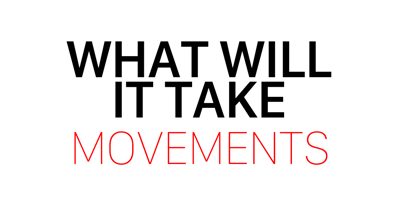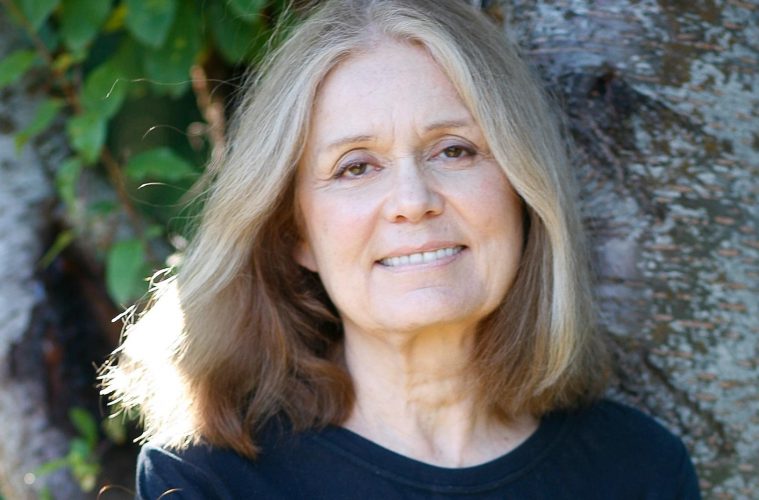This interview is an excerpt from What Will It Take to Make a Woman President?: Conversations About Women, Leadership & Power by Marianne Schnall. All rights reserved.
Marianne Schnall: Why do you think it is that we have not yet had a woman president?
Gloria Steinem: One reason is that women weren’t citizens from 1776 through the constitutional amendment [in 1920]. We were possessions, like tables and chairs. So there was not the opportunity [for women] to own property, to have the right to one’s own earnings, to have the right to your own children. You could be forcibly returned to a violent husband. You were property, literally, like a thing. And the laws of slavery were modeled on the laws affecting wives, so that takes care of the long time through the 1920s [laughs].
And since then, we have been overcoming legal barriers. For instance, women couldn’t sit on juries, law schools didn’t accept women, or accepted a small percentage of women when I was growing up. When I would have gone to law school, Harvard accepted no women and Columbia accepted 5 percent. So those are just symbolic areas, but they’re illustrative, real, powerful barriers.
There are also what are called cultural barriers, but I’m not sure we should call them cultural, because it seems to me what affects men is called political and what affects women is called cultural. So the idea that only women could raise children meant that also when this wave of feminism began in the seventies and we began to try to elect women, there were two frequent questions of women candidates. One: If you don’t have children, why not? And two: If you do have children, why aren’t you home with them?
The deeper problem is that we are still raised as children, mainly by women, so we associate female authority with childhood. We, as women, have our own example to go by, so sometimes we change—although there are also women who don’t think that female authority is appropriate to public life. But it’s more likely to be men, and I think we saw it in the response to Hillary in 2008 when big, grown-up, otherwise adult television commentators were saying things like, “I cross my legs when I see her. She reminds me of my first wife, standing outside alimony court.” People who would not ever say such things, normally, were saying them about Hillary, because, I would guess, deep down they felt regressed by a powerful woman. The last time they saw one they were six years old.
“It’s important for the whole country that we are able to choose from all of our talent, otherwise we lower our standards.”
MS: What a conundrum for women, though. Because if women who are confident or ambitious or powerful or in positions of leadership are seen as unlikable, how can women be accepted and respected as leaders?
GS: You do it anyway. You just go forward, and you end up changing the image eventually, and you may take a lot of punishment along the way. But I do think that now we could elect a woman as president, because of the bravery of a lot of women, especially Hillary. But Shirley Chisholm also took the WHITE MALE ONLY sign off of the White House door all by herself.
MS: I feel like this whole conversation sometimes gets reframed incorrectly as a men versus women conversation, that it’s some type of competition. Why would electing a woman as president be important?
GS: It’s important because we need the talent of the whole country, not just a small percentage of it. Once at Ms. Magazine we tried to figure out the talent pool from which we were choosing presidents. First you eliminated half the country, the females. Then you eliminated by class, race—because obviously Obama had not yet been elected. Anyway, we ended up with 6 percent. So it’s important for the whole country that we are able to choose from all of our talent, otherwise we lower our standards.
Secondly, gender is still a social force, so it’s still probably true, not always, but probably true that women are somewhat less likely to choose an aggressive solution and more likely to choose a conciliatory one. Not that a conciliatory one is always right, but it’s just that it tends to be the least present in public life….
Men are made to feel that they have to earn their masculinity and to sometimes get into an extreme cult of masculinity that requires control and violence. Cesar Chavez used to say, “We want to rescue the executioner from being the executioner, as well as the victim from being the victim.”
MS: Sometimes I think we’re talking not in literal gender terms, but conceptually, where sometimes feminine values like cooperation and care and empathy and compassion are seen as soft or weak, rather than part of the full circle of human qualities.
GS: But that’s just because masculinity is perceived as superior, necessary, inevitable, conquering, winning—all those things.
MS: When I interviewed Michael Kimmel, he said that it is really important to make sure that this conversation is not anti-men—that men not only lately are being there to support women, they understand why it would be helpful to the world to have more women in these positions, but also to free themselves.
GS: I’ve forgotten who said, “The woman a man most fears is the woman inside himself.”
MS: I feel like Obama does have what you might call more “feminine” traits, in terms of being conciliatory and showing how important family is to him—
GS: I think we ought to forget about talking about masculine and feminine altogether; we should talk about humans.
“The voting booth is the only place on Earth in which everybody’s equal.”
MS: I think a lot of this is the linguistics of things. While advocating for the fact that we do want equality for women, but at the same time being careful that it’s not framed as women are perfect or better—all these things that have always been part of the misconceptions of the feminist movement.
GS: It is because culture is what it is, right now. Society is what it is. It’s probable that walking around female for twenty years, or fifty years, in this culture has given someone a set of experiences that men don’t necessarily have—in the same way that walking around as a black person or a Hispanic person or a gay person gives people a different set of experiences than a white, heterosexual person. Experience is everything. Somebody who has experienced something is more expert at it than the experts. We need politicians who look like the country.
MS: There are many other countries who have already elected female heads of state, and the United States is ninetieth in the world in terms of women in national legislatures. What do these other countries know that we don’t, and why is the United States lagging so far behind?
GS: There are a variety of reasons and they all function in different ways. One is there’s more power in this country. It’s still the dominant power in the world, so there’s more competition for these jobs. One is that we are multi-racial, and racism always increases sexism because you have to maintain control of women and reproduction in order to maintain racial difference. So one-race countries, generally speaking, as the Scandinavian example, for instance, have slightly less motivation to remain sexist.
Another is that we are big and decentralized, so social reform has to take place fifty times, whereas in France or Sweden or Finland it only takes place once in the national legislature.
MS: Are you feeling hopeful with the last election? Sometimes it feels crazy to be celebrating twenty women in the Senate. While it’s a big milestone, it’s still obviously so lacking. Are you feeling progress, like we are making a steady climb?
GS: I am, but it depends what we do. I feel hopeful, but I feel hopeful that you and I will act. It’s not automatic. Nothing is automatic.
MS: What does that mean to the common person?
GS: It means recognizing that the voting booth is the only place on Earth in which everybody’s equal—so, using it. We’re still not doing so well in percentages of who votes.
“As Sheryl Sandberg points out, we have to lean in—lean in and not be dependent on being liked, as much as the culture has encouraged us to be.”
MS: In terms of women running themselves, what do you think are some of the factors or obstacles—either societal or sometimes even self-imposed— that deter women from entering the political pipeline? And what can we do as a society to encourage more women to run?
GS: One is that politics is a rough game and that women are culturally taught to seek approval, not disapproval. So as Sheryl Sandberg points out, we have to lean in—lean in and not be dependent on being liked, as much as the culture has encouraged us to be.
Money, of course, is a huge barrier. I’ve raised money for candidates, who, if I’m raising money for them, probably are all the same on the issues. But if I’m raising money for a man running for the Senate, someone will give me $1,000; if it’s a woman, they’ll give me $200 or $300. Not consciously, but unconsciously, as if women can get along on less or they’re ashamed to give a man less. We have to name that and be conscious of giving women candidates as much as we would a male candidate.
MS: In the movie Miss Representation, Carolyn Heldman said that when children are seven years old, boys and girls say they want to become president in roughly the same numbers. By the time they’re fifteen, however, the number of girls who say they’d like to be president drops off dramatically, as compared to the boys. What role do you think the media plays in all this?
GS: Well, of course, the media is the main purveyor of masculinity and femininity. And, as Carol Gilligan pointed out so brilliantly, when little girls are eleven and twelve, or perhaps even younger, the gender role comes down upon them. And the purpose of the gender role is to turn us toward having babies and taking care of them for nothing.
MS: Out of all of the answers in the piece I did for CNN about what it would take to make a woman president, people were most intrigued by yours, which was about gender roles. You said, “One of the most helpful things we can do long term is to make sure that kids have loving and nurturing male figures as well as female figures, and authoritative and expert female figures as well as male figures.” What are some concrete ways as a society we can begin to support those shifts?
GS: Well, it’s up to each person and everyone’s situation is different, so I’m not trying to say that people have to do one thing. But we could understand that boys can be babysitters. We can, before we have children with someone, try to make sure that they want to be nurturing parents, if they’re men. Sheryl Sandberg always says this: The single most important career decision you make is the partner you choose, supposing you want to have children.
MS: How did you tap into your inner leader? What advice would you give on having the courage to honor your voice and to speak out and contribute your influence, even though sometimes society is pushing against that?
GS: Hang out with people who make you feel smart, not dumb. That’s crucial. Because if they make you feel dumb, they’re not supporting you and they’re not helping you. It isn’t that we’re right or wrong. It doesn’t have to do with being right all the time, but if you have consistency of support from people who value your opinion, it will help you to value your opinion. We’re communal people. You can’t do it by yourself.
MS: Do you feel hopeful that we will have a woman president?
GS: I feel hopeful, because I feel hopeful that you and I and the people reading this will act.
(This interview is an excerpt from What Will It Take to Make a Woman President: Conversations About Women, Leadership & Power by Marianne Schnall. All rights reserved.)
About Gloria Steinem
Gloria Steinem is a best-selling author, lecturer, editor, and feminist activist. She travels in the United States and other countries as an organizer and lecturer and is a frequent media spokeswoman on issues of equality. She is particularly interested in the shared origins of sex and race caste systems, gender roles and child abuse as roots of violence, non-violent conflict resolution, the cultures of indigenous peoples, and organizing across boundaries for peace and justice. In 1972 she co-founded Ms. Magazine, which has become a landmark in both women’s rights and American journalism. She also co-founded the Women’s Media Center and the National Women’s Political Caucus, a group that continues to work to advance the numbers of pro-equality women in elected and appointed office at a national and state level. She lives in New York City and is the author of the travelogue My Life on the Road, a book about her more than thirty years on the road as a feminist organizer. www.gloriasteinem.com



